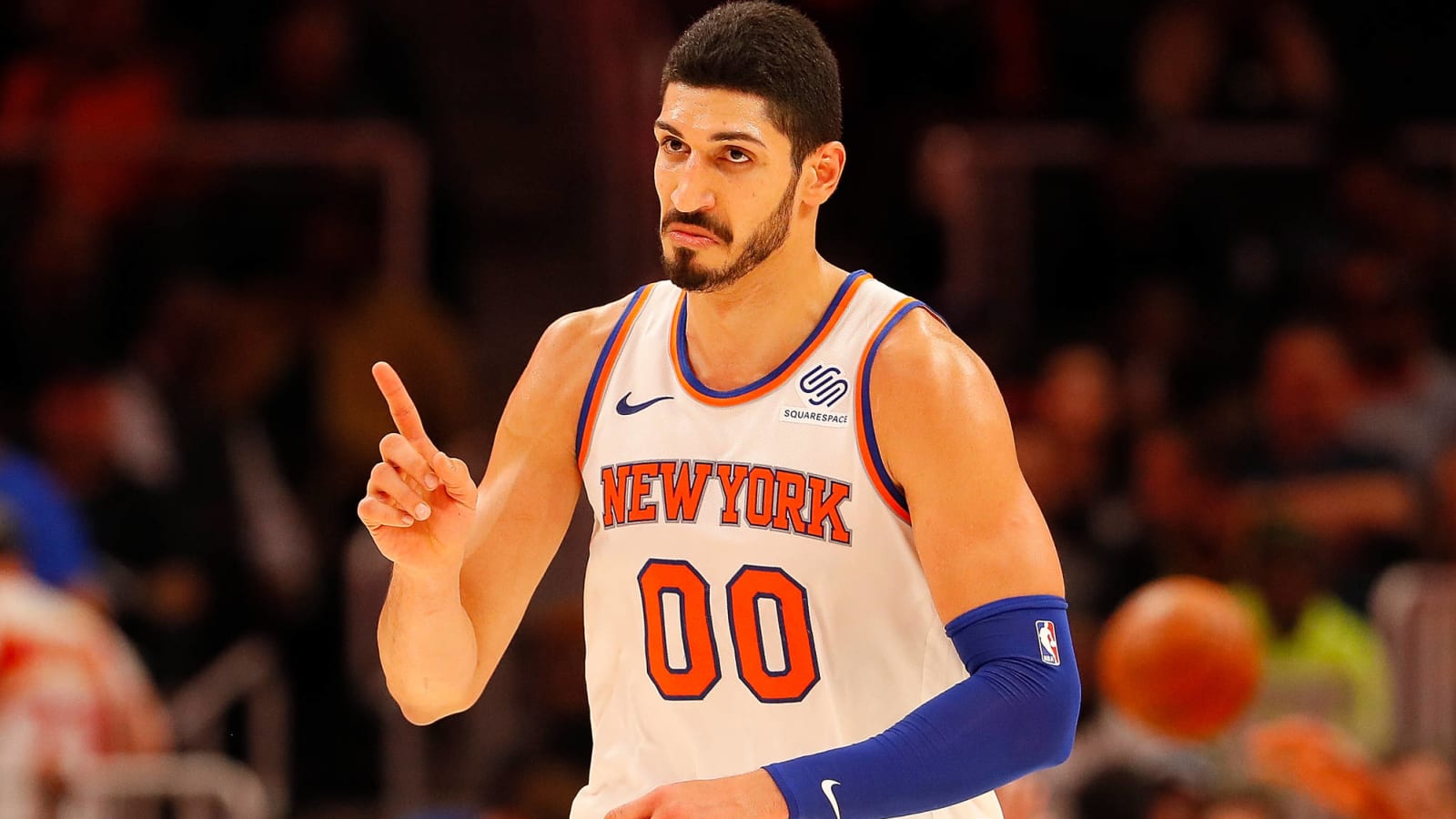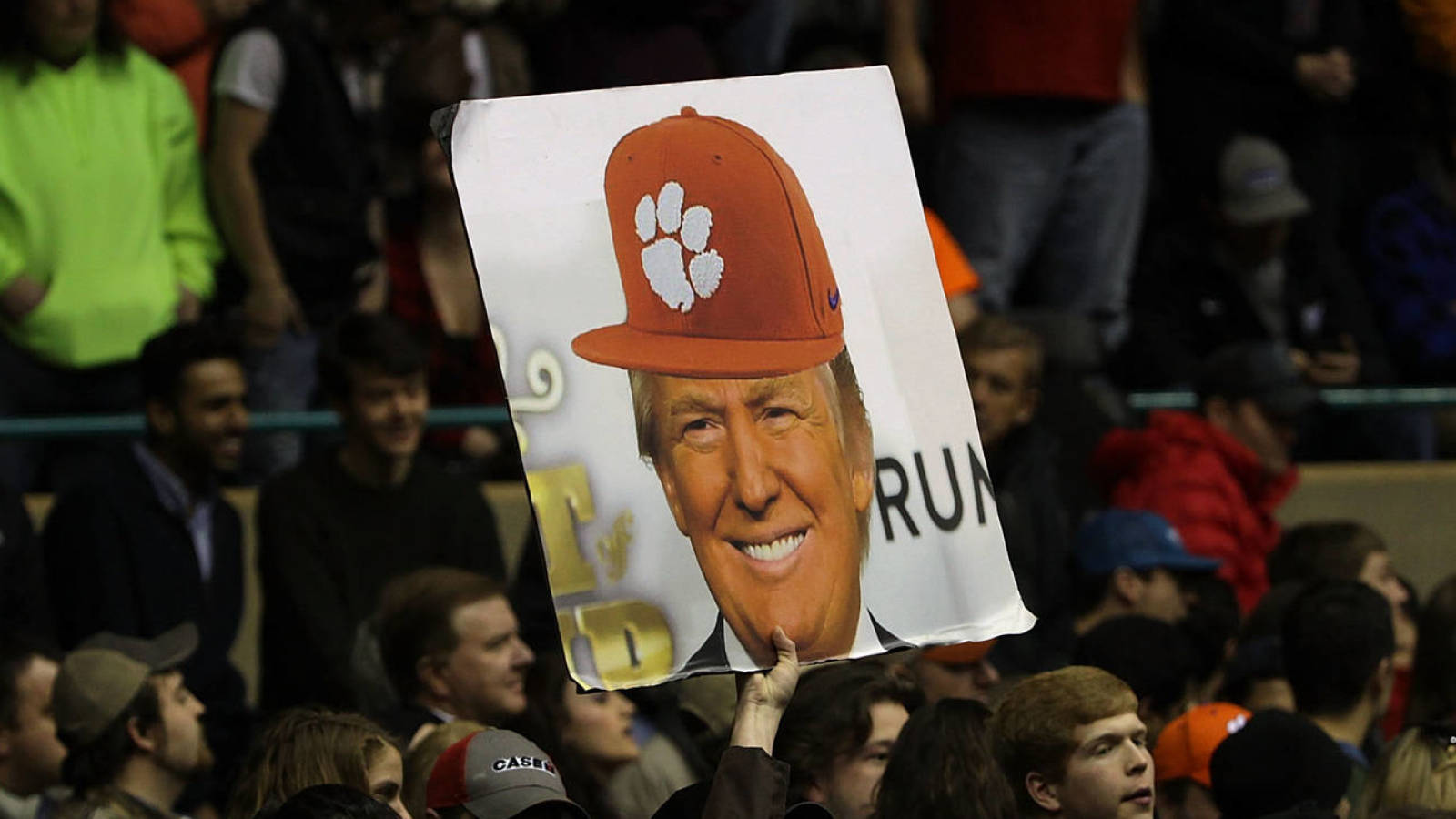
Sports & Politics Intersect: Kanter nixes Knicks London trip due to fear of Turkish reprisals
“It’s very sad. I respect the guy a lot, I respect his game.” - Enes Kanter on the recent dispute with Hedo Türkoğlu over Turkish president Recep Tayyip Erdogan
On Jan. 17 in London, the Washington Wizards will play the New York Knicks without Enes Kanter. The Turkish center will not travel with the Knicks out of fear for his life because of a years-long dispute with Turkish president Recep Tayyip Erdogan.
Kanter has been receiving death threats and calls for his arrest dating back to 2016 when he voiced his opinion against Erdogan bombing Turkey’s capital city, Ankara. Since then, Kanter has been held for several hours at a Romanian airport after the Turkish government canceled his travel documents and has been threatened with up to four years in jail for insulting Erdogan on Twitter.
Kanter believes that the large population of Turkish residents in London and government spies in the city would put his life at risk if he made the trip. "It's pretty sad that just all this stuff affects my career and basketball, because I want to be out there helping my team win,” said Kanter. “But just because of that one lunatic guy, one maniac or dictator, I can't even go out there and just do my job. So it's pretty sad."
Former NBA All-Star Hedo Türkoğlu called Kanter’s comments about Erdogan an extension of a “smear campaign” and said Kanter could not make the trip because of a visa issue. Türkoğlu, who had a good relationship with Kanter while in the NBA, now serves as a chief adviser for Erdogan.
Kanter refuted the visa comment by tweeting out a photo of what appears to be his travel documents and by calling Türkoğlu a lap dog for Erdogan.
Even while in the states, Kanter doesn’t leave his apartment without at least one friend and doesn’t travel internationally except for trips to Toronto to play the Raptors.
He continues to fear for his family. His father, Mehmet, has been imprisoned and released in Turkey but will stand trial for charges of being a member of a terrorist group and could face five to 10 years in prison. Kanter hasn’t seen either of his parents since 2015 and only sees their faces through photos from his brother, who plays professional basketball in France.
Need to know now:

Trump invites Clemson to White House - On the heels of Clemson football’s second national championship in three years, President Donald Trump congratulated the team and extended an invitation for a celebration at the White House. Perhaps Trevor Lawrence can help end the government shutdown.
Robert Kraft gets Israel’s Genesis Award - New England Patriots and Revolution owner Robert Kraft was honored by Israel with the Genesis Award for his philanthropy and work to fight anti-Semitism. Kraft’s relationship with President Trump is well-documented, but he also shares a bond with Israeli prime minister Benjamin Netanyahu, whose presence is a deterrent for last year’s recipient , actress Natalie Portman.
Sacramento Kings honored by NBA with inclusion award - The NBA recognized the Sacramento Kings with its Inclusion Innovation Award on Tuesday for the team’s response to the death of Stephon Clark, who was killed by police last March. The incident sparked outrage in the Sacramento area, and the team immediately began outreach efforts to support the wounded community.
Virginia official wants to join pact against potential new Redskins stadium - Virginia delegate Michael Webert is pushing for the state to join an agreement made between officials in Washington D.C. and Maryland to not provide state or local assistance to the Washington Redskins to go toward building a new stadium. In addition, the Central Maryland Heritage League continues to speak out against a plan endorsed by Gov. Larry Hogan to exchange land with the federal government that can be used for the venue.
Tucson Raiders of Las Vegas? - A lawyer from Tucson has reached out to the Oakland (for now) Raiders to convince them that Arizona’s second-largest city could be a perfect temporary home next season until their new stadium in Las Vegas is complete. Yet the team has reportedly begun talking to San Diego about potentially playing in the former Chargers home for the 2019 season. (San Diego mayor Kevin Faulconer denies such communication.)
Oregon law for potential MLB stadium funding could be repealed - The MLB-to-Portland drive may face a massive roadblock, as a 2003 law could be repealed. That law, contingent on the success of a previous campaign to bring baseball to the city, states that taxes paid on player salaries would be set aside to help finance a new baseball stadium.
Predators’ Subban, Capitals supporting youth players enduring racism - A black youth hockey player in the Detroit area was taunted for his skin color, which prompted Nashville Predators star defenseman P.K. Subban to send a video in support of him . In response to a separate incident against a black player in Maryland, Devante Smith-Pelly and John Carlson of the Washington Capitals invited the player’s youth hockey team to a recent home game against the St. Louis Blues.
Russia allowing WADA to inspect labs - After missing a previous deadline to submit drug-sampling data to the World Anti-Doping Agency, Russia allowed the agency to inspect its laboratories but also claimed that disagreements over logistics were at fault for missing last month’s deadline.
NFL drops appeal over dementia claims - The NFL dropped its appeal against challenging approved dementia claims in relation to its $1 billion concussion settlement. The league believed that the standards used by settlement-approved doctors to make diagnoses were inconsistently applied.
Nationals postponing season ticket payments by federal employees - With the partial government shutdown flirting with a fourth week, the Washington Nationals are doing a solid for season ticket holders who work for impacted federal agencies by postponing payments for those fans.
Judge overturns ban on taekwondo coach - Jean Lopez, a taekwondo coach who was accused of sexual misconduct, will be able to coach again after an arbitrator lifted a ban imposed by the U.S. Center for SafeSport. Those accusations, as well as the many high-profile scandals within Olympic sports governing bodies, have compelled nearly 50 former Olympians — including swimming legend Greg Louganis and tennis great Martina Navratilova — to call for Congress to completely overhaul the leadership of the U.S. Olympic Committee.
First female officials working NFL playoffs - For this weekend’s divisional round of the NFL playoffs, Sarah Thomas will have her first on-field postseason assignment (Chargers at Patriots), while Terri Valenti will be a replay official in Kansas City (Colts at Chiefs). Both will be the first women in league history to work in such capacities at playoff games.
Godmother of Title IX passes away - Dr. Bernice Sandler, whose activism led to the passage of the landmark legislation known as Title IX, died at the age of 90. Though Sandler’s work was initially rooted in gender inequities in academia, she also made a dramatic impact beyond the classroom, as the federal law required that male and female students are entitled to equal access to college resources; most notably in sports.
This week in sports and politics history: NCAA institutes random drug testing program

“They won’t know when we’re coming to test, and athletes may be tested more than once during a year. As some of my colleagues have said, you have to be pretty damn dumb to fail a test when you know it is coming. That is what we’re trying to stop.” - University of Pittsburgh athletic director Edward E. Bozik after the NCAA approved year-round, random drug testing in college football on Jan. 10, 1990
Drug use in sports during the 1980s was almost as prominent as the athletes who rose to stardom playing the games. Whether it was the use of recreational drugs like cocaine that tragically took the life of projected NBA great Len Bias and essentially ruined the NFL career of star defensive lineman Dexter Manley or the performance-enhancing variety that tainted Ben Johnson’s Olympic glory, there was a problem.
Then there was Tommy Chaikin.
Chaikin was a little-known college football player at the University of South Carolina, and his harrowing and disturbing story, told through the pages of Sports Illustrated in October 1988, painted a graphic picture of how anabolic steroids consumed his collegiate career during the mid-’80s and pushed him to the brink of suicide. Chaikin told The Washington Post in 1988, “I was a pretty laid-back individual when I was in high school, and when I got to college I was even laid-back my first year. But as I started to use the steroids my personality changed. I’ve seen too many guys come in who were kind of laid-back people, and the next thing I know, you see them five years later and they’re cold and just violent people.”
Chaikin was not alone at the time, as the High Technology Fitness Research Institute of the Chicago College of Osteopathic Medicine suggested that “one in every 250 people” was abusing steroids.
But perhaps in no other capacity were steroids being used as much as they were within the college football landscape — especially at South Carolina, as Chaikin alleged, where four members of the Gamecocks coaching staff were indicted by a federal grand jury in 1989 for their role in accessing and distributing steroids to players. Vinton Lide, U.S. Attorney for the District of South Carolina, said at the time of those charges, “It’s my feeling that you just can’t continue to go along with a win-at-all-costs attitude. I think we lose sight of why we have institutions of higher education.”
In light of Chaikin’s story and the troubles at South Carolina, the NCAA finally decided to officially get involved, 29 years ago. On Jan. 10, 1990, the NCAA announced the approval of year-round, random drug testing within Division I-A and I-AA college football. The cost was $2 million, and a one-year suspension would be attached to any athlete who failed the test. NCAA executive director Richard Schultz said in a New York Times report that the need to increase such testing in the game grew because “we are only catching the dumb ones.” While the focus was on football, athletes in other collegiate sports would be tested before postseason competition.
Naturally, the NCAA’s announcement did not come without controversy. At the time, Pac-10 schools like Stanford, Oregon, Oregon State, Washington and Washington State were dealing with legal constraints for on-campus testing. At Stanford, for example, Cardinal athletes were not subject to drug testing after diver Simone Le Vant said it was a violation of her privacy rights.
As time went on, privacy issues in relation to drug testing remained, but in the mid-1990s, the California Supreme Court ruled, in Hill v. NCAA, that such random testing was in accordance with the state’s privacy laws.
The NCAA continues to conduct random drug testing amid various levels of opposition. And while there still are some athletes who might use PEDs, stories like Chaikin’s are not as commonplace today. That is a good thing.
More must-reads:
- CBS considering Super Bowl LIII pregame interview with Donald Trump
- NFL, NFLPA issue joint response to Eric Reid’s drug testing allegation
- The 'Most points in a playoff game by team' quiz
Breaking News
Customize Your Newsletter
 +
+
Get the latest news and rumors, customized to your favorite sports and teams. Emailed daily. Always free!

